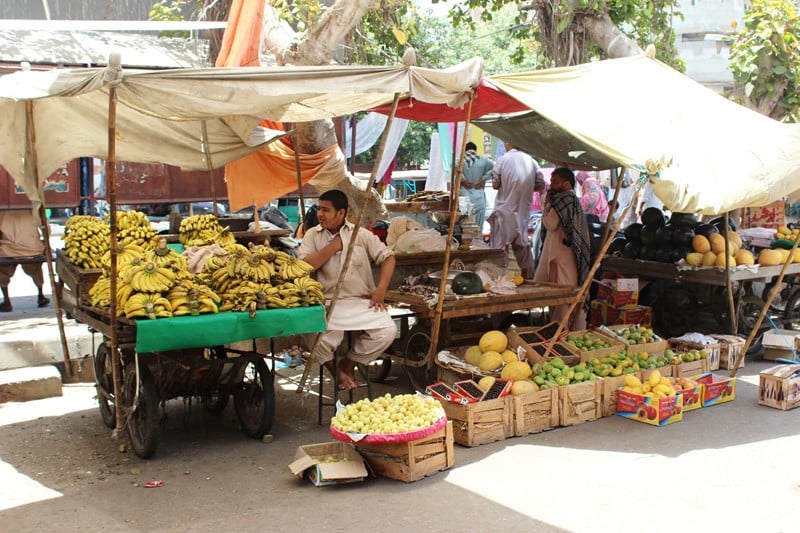
The government needs to frame and properly implement policies to regulate street vendors

Rapid growth of towns and cities across Pakistan has caused a sharp increase in urban poverty. Majority of these urban poor earn their livelihoods in the informal economy in the absence of any recognition and protection provided by federal or provincial legal and regulatory frameworks.
They suffer from lack of sufficient opportunities for decent employment, denial of basic rights at work, inadequate social protection and lack of organisation and representation. They are also often stigmatised, excluded or even criminalised by law enforcement officials and local authorities. A significant proportion of informal workers tend to be women who face unique disadvantages such as harassment by officials that makes it difficult for them to make a decent living yet their earnings are critical for the survival of their households.
In Pakistan, it is estimated that over 78 per cent of the non-agricultural employment is informal. One of the most visible types of informal workers in cities are street vendors who sell a variety of goods from fruits and vegetables to garments and toys.
Street vendors can be self-employed, semi-dependent (for example, selling products against a commission), and paid employees that are either selling from a fixed spot or are mobile hawkers. They are, in many ways, the cornerstone of the urban retail economy that helps sustain the middle income group by providing affordable food, goods, and services at convenient locations.
However, this perception is not necessarily shared by local authorities who often view them as a nuisance. Due to these vendors’ visibility, officials frequently crack down on them, demand bribes, confiscate their merchandise, or evict them from their places of work. The significant challenges that these vendors face include lack of a secure workplace, relocations, and limited access to urban infrastructure (such as toilets, shelters, storage, water, electricity). In most cases, they end up paying a range of costs that formal enterprises do not pay such as cash paid for securing a space on the street, bribes to prevent evictions, and in-kind payments for confiscated merchandise.
In the past five years, both the federal and provincial governments have taken steps towards developing policies for safeguarding the interests of these workers but in most cases these policies are still awaiting approval from cabinets (domestic workers policy was recently approved by the government of Punjab). While approval is no guarantee that these will be implemented, it is hoped that at least these workers will be recognized formally and subsequent efforts will be made to operationalise these laws. Currently, there are barely any efforts being undertaken to develop a framework to protect the interests of street vendors.
There are many success stories across Asia where governments have taken steps to provide protection to street vendors by recognising them as key economic agents. In Thailand, the government launched a campaign called Street Vending: Charms of the City to highlight the economic contribution and significance of these vendors. Street vendors have to pay a permit fee to get access to a designated vending spot and are provided health insurance through a 30-Baht (1 Thai Baht=3 Rupees) medical coverage scheme. The local authorities have not only been able to generate revenue through the fee but also protect the interests of street vendors and provide them with a space to continue their activities.
Recently, India has also passed legislation on street vending that entails establishing Town Vending Authorities that will survey existing street vendors and issue permits to them along with ensuring their protection from harassment by police and designating spaces for them to carry out their businesses in a conducive environment.
It is critical that the government realises the economic value of these street vendors so that a hybrid local economic development model is implemented that links both formal and informal markets. There is a dire need for more market spaces such as the Sunday Bazaar in H-9, Islamabad (many cities have similar models) that provide safe and secure working conditions for these vendors. At the same time, there is a need to undertake a survey for data collection so as to ascertain the number of vendors in cities for more effective planning.
Street vendors add vibrancy to cities along with providing a valuable economic service to its residents. Unfortunately, they do all of this without any protection or sustainable livelihood which makes it difficult for them to ever step out of the poverty trap.